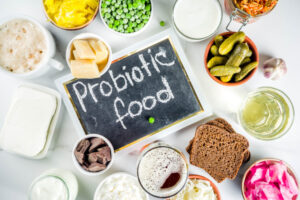 I’ve maintained my optimal weight for at least the past six years. This, by the way, is the same as my high-school weight, which isn’t bad for a woman 50+ years young! Hopefully, by sharing the tips and strategies that helped me over the years, you, too, can experience your own success story.
I’ve maintained my optimal weight for at least the past six years. This, by the way, is the same as my high-school weight, which isn’t bad for a woman 50+ years young! Hopefully, by sharing the tips and strategies that helped me over the years, you, too, can experience your own success story.
We all know there is no “one size fits all” in weight-loss which is why we recommend nutritional testing. If you’ve attempted these strategies or just want to expedite the weight-loss process, give us a call. We love to help people ready to begin a journey to wellness, women and men alike. In your quest to lose weight, please don’t starve yourself, limit your food choices, or ingest synthetic foods. We can help you achieve your goals naturally!
- Eat clean or organic foods as much as possible. Grow your own and/or buy from farmers who don’t use chemicals. Purchase certified organic grown in the U.S. We are not necessarily overweight so much as we are over toxic because our bodies are inundated with chemicals within the processed foods we eat.
- Eat more fruits, vegetables and greens. This is one food group that is critically deficient in the diet. This group is also the only one that contains fiber and antioxidants. Animal products don’t. Also, fruits, veggies and greens digest much easier than meat or dairy products.

- Add essential fatty acid (EFA) foods to your diet. EFA foods include wild salmon, avocados, chia, hemp or flax seed, walnuts, coconut oil or extra virgin olive oil (preferably that has not been heated). My goals is to consume 2-4 tablespoons per day. EFAs are crucial for hormone regulation and brain function as well as other important bodily processes.
- Eat less animal products, especially dairy. When you fill up on plant foods, you naturally eat less animal food. Again, the downside of animal protein is that it is difficult to digest which causes the body stress. It is also inflammatory, and if not eaten organically, it is laden with hormones, genetically modified feed, and antibiotics.
- Start your morning with 6-8 ounces of purified water. Most people are critically dehydrated and are being counter-productive by consuming beverages that dehydrate, such as sodas, coffee and alcohol. Continue drinking water all day, replacing all other beverages. Water is the best detox and energizer available.
- Sleep 7-9 hours per night and be in bed by 10 p.m. Your body repairs and rebuilds between 10 p.m. and 2 a.m. so it is essential to be asleep during this time frame. Be sure to remove all technology (cell phones, computers/tablets) from your bedroom to eliminate stimulation from electromagnetic radiation. Also, avoid “electronic insomnia” by powering down your cell or tablet at least 30 minutes before bedtime. Obtaining adequate sleep reduces your body’s need for external sources of energy that can causes us to overeat.
- Engage in fun, sweaty activity daily. Do something you enjoy and that gets you moving, like dance, yoga, walking, etc. Even moving 10-15 minutes is better than doing nothing. You don’t have to buy a gym membership since walking outdoors is great therapy. I own a rebounder and a Chi Machine which
both give me a way to get in exercise when inclement weather prohibits outdoor activity. - Get the white out of your diet. Greatly reduce or eliminate white foods such as pasta, rice, bread or potatoes. Pastas and bread are not nutritionally dense, and they contain gluten. Even gluten-free pastas typically consist of low quality filler ingredients. Quinoa is a more nutrient dense grain/seed as well as a complete protein. Consider using it in place of gluten-free or traditional pasta noodles.
- Get the gluten-out. Many people feel that gluten free diets are a fad. However, many people are gluten intolerant and have no idea. You can use nutritional testing to determine if you are intolerant and/or perform a simple elimination test for two weeks by going gluten-free. When added it back into the diet, most people who are intolerant will experience a multitude of symptoms such as headaches, bloating, gas, increased inflammation or other digestion issues.
- Monitor your portions. You do not need to count calories or points, just learn to eat to satisfaction instead of to a feeling of fullness. If you eat until you are full, typically, you’ve eaten too much. Americans underestimate the amount of poor quality foods they consume and overestimate the amounts of fruits, vegetables and greens. Keep half of your intake of each meal from plants.






